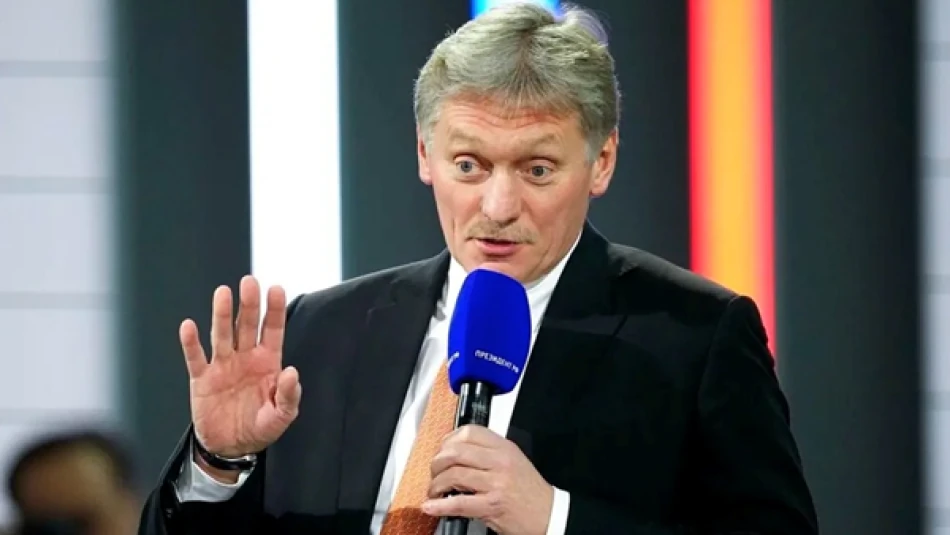
Russia Aims to Set Date for Upcoming Ukraine Talks, Seeks Diplomatic Resolution
Russia and Ukraine Edge Closer to Third Peace Talks Amid Entrenched Positions
The Kremlin confirmed Monday it is working to schedule a third round of peace negotiations with Ukraine, responding to President Volodymyr Zelensky's proposal to hold talks this week. However, Russian officials emphasized the significant diplomatic challenges ahead, citing "completely" different positions between the two sides that will require extensive work to bridge.
Diplomatic Machinery in Motion Despite Deep Divisions
Kremlin spokesperson Dmitry Peskov told journalists that Moscow would announce dates "as soon as a final agreement is reached," while acknowledging the substantial gap between Russian and Ukrainian negotiating positions. His comments suggest both sides remain committed to dialogue despite the ongoing military conflict, though expectations for breakthrough agreements appear modest.
The timing of Zelensky's proposal for talks this week indicates Ukraine's urgency to find diplomatic solutions as the conflict continues to exact heavy costs on both military forces and civilian populations. For Russia, maintaining the negotiation process serves multiple strategic purposes, including demonstrating openness to peaceful resolution while potentially buying time for military operations.
Historical Context of Wartime Negotiations
Peace talks during active conflicts historically face enormous challenges, as military developments on the ground directly influence negotiating positions at the table. The first two rounds of Russia-Ukraine talks have yielded limited concrete results, following a pattern common in wartime diplomacy where initial discussions focus more on establishing communication channels than resolving core disputes.
Similar dynamics played out in conflicts from Vietnam to the Balkans, where multiple rounds of talks were necessary before substantive agreements emerged. The acknowledgment of "completely different" positions suggests both sides are still far from the mutual exhaustion or stalemate that typically precedes serious compromise.
Strategic Implications for Both Sides
For Ukraine, continued diplomatic engagement serves to maintain international support while demonstrating reasonable behavior to Western allies providing military and economic assistance. The country's negotiating position likely remains anchored in territorial integrity and sovereignty principles that have defined its resistance.
Russia's participation in talks, despite Peskov's pessimistic assessment of position alignment, suggests Moscow recognizes the need to appear open to diplomatic solutions, particularly as international sanctions continue to pressure its economy. The emphasis on extensive diplomatic work ahead may also signal Russian expectations that time and continued military pressure could shift Ukrainian positions.
Market and Global Response
Financial markets typically react positively to peace talk announcements, even when prospects for success remain uncertain. Energy markets, particularly European natural gas and oil prices, remain sensitive to any developments that could affect Russian supply disruptions or sanctions regimes.
The international community, led by NATO allies and EU partners, continues to balance support for Ukrainian sovereignty with concerns about conflict escalation. Third-round talks, regardless of immediate outcomes, provide diplomatic cover for continued Western engagement and potential future mediation efforts.
Most Viewed News

 Layla Al Mansoori
Layla Al Mansoori






